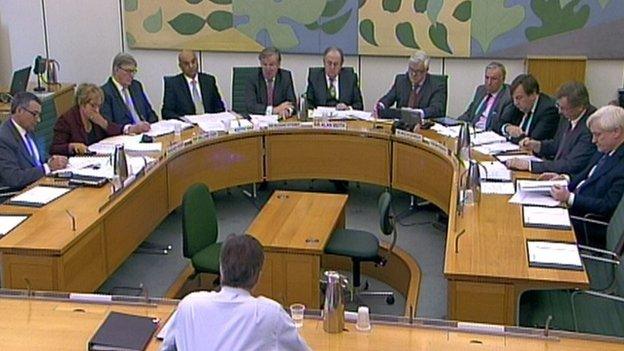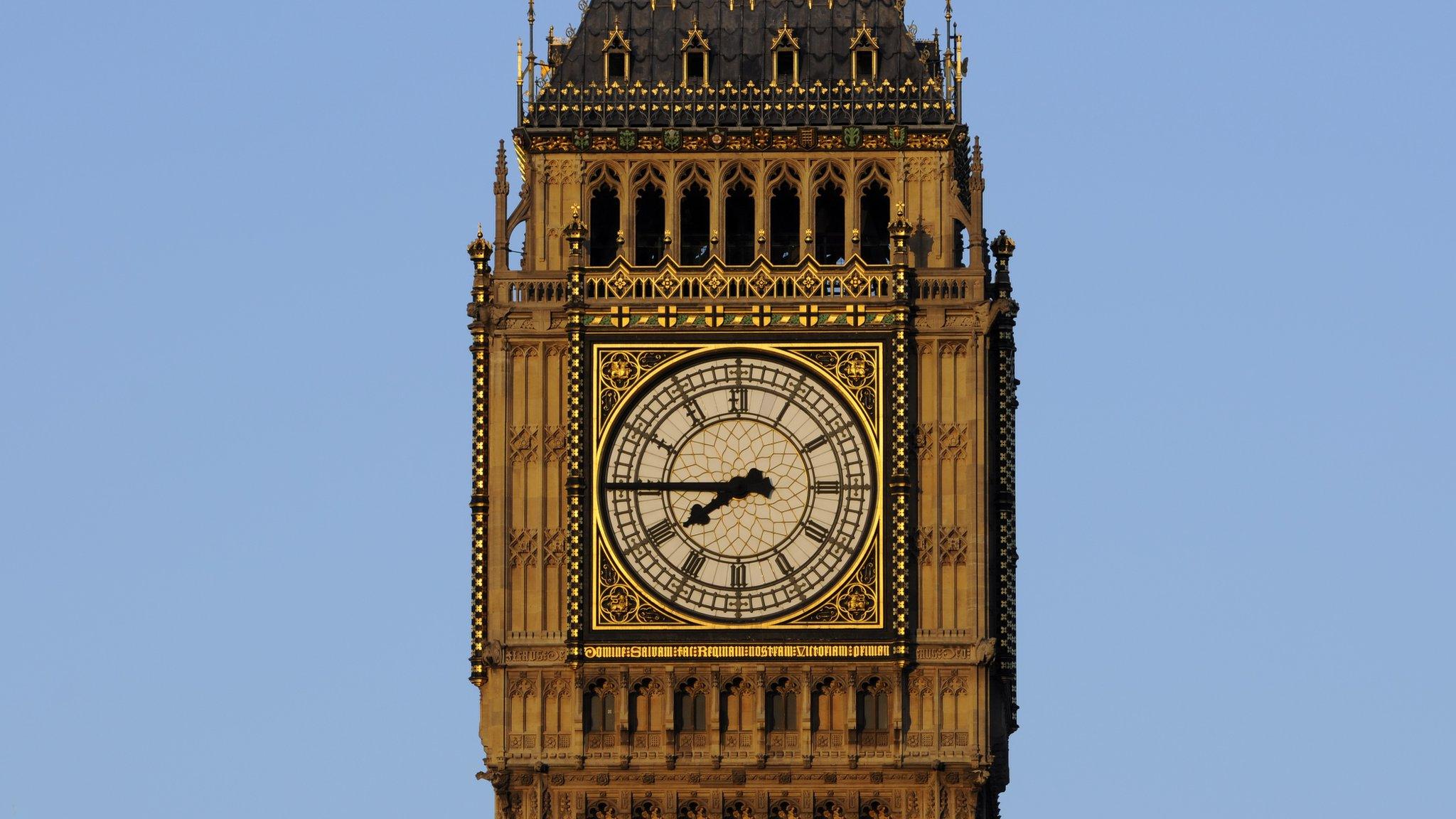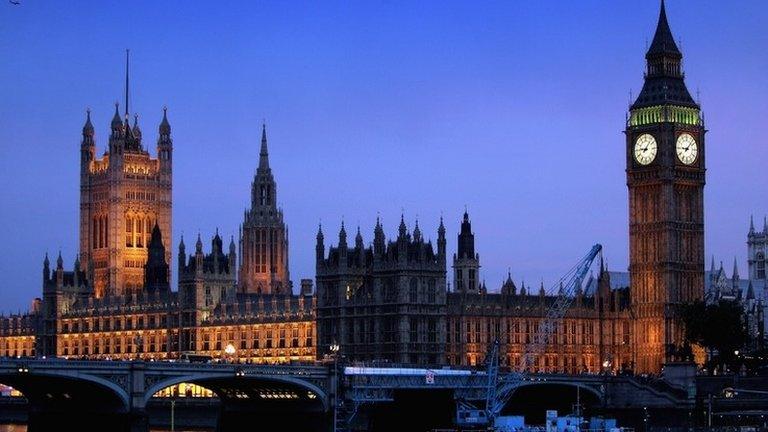Pay rise urged for MPs on Commons select committees
- Published

There are 18 departmental select committees scrutinising government departments
MPs who sit on Commons select committees should get a £10,000 pay rise as part of a shake-up of the legislative process, a think tank says.
Reform, external said committees which scrutinise the work of government departments should take on more responsibility for debating and amending new legislation.
The 180 members who sit on committees should get a £10,000 top-up to their pay and the 18 committee chairs £9,000.
But it said they should be docked pay if they did not turn up to meetings.
The UK's 650 MPs are currently paid £67,060 but are in line for a 9% pay rise later this year after the independent watchdog said pay should rise to £74,000 after the election.
David Cameron, Ed Miliband and Nick Clegg have all criticised an increase on such a scale at a time when public sector pay rises are capped at 1%.
'Weak scrutiny'
Select committees have grown in stature and influence in recent years and the role of chair, which have been elected since 2010, are highly coveted.
MPs are not paid extra for their committee work although committee chairs get a £14,000 supplement, taking their pay to £81,642.
Reform, which focuses on public service improvement, said select committees should take over the work of public bill committees, ad hoc bodies that are set up specifically to scrutinise new legislation and to take evidence from interested parties, including members of the public.
It said the work of public bill committees, which debate every clause of a proposed bill and any amendments, was "woefully inadequate" due to a lack of expert knowledge, insufficient time and an often partisan approach taken by MPs.
'Career path'
Select committees, in contrast, have a higher degree of independence from the government and can draw upon specialist support, it argues.
"Weak scrutiny threatens the quality of legislation, hindering efforts to build a stronger economy and society," said Camilla Hagelund, the author of the report.
"Giving select committee members a salary boost would improve the status of select committees. It would also create a separate career path for MPs, lessening the power of patronage enjoyed by party leaders, which is weakening Parliament's ability to hold the executive to account."
Under Reform's proposals, MPs would lose half of their salary supplement if their attendance levels at committee hearings dropped below 95% and would see the entire sum docked if they fell below 90%.
Reform said the Commons should also be cut in size from 650 to 600 so there are "fewer members working harder".
The move would save at least £11m, it says, with some of money being re-invested in strengthening the secretariat of individual committees.
The government abandoned plans to slim down the Commons in 2012 at the same time it dropped proposals for elections to the House of Lords following disagreements between the Conservatives and Liberal Democrats.
- Published22 March 2015

- Published7 September 2014
